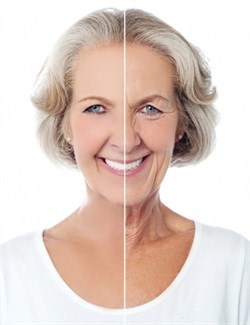
The research shows 61% of South African respondents worried most about their frown lines, while 51% felt concerned about crows' feet, the lines around the eyes. Around 45% felt bags under their eyes were the most important facial feature to treat.
"This differs from respondents in Europe, where frown lines were not of particular interest," says Morné Steenkamp, Country Manager, Allergan South Africa. "European respondents were far more interested in treating the area around their eyes or their lips."
The research in South Africa, which comprised 75% women and 25% men, shows the main motivators for South Africans seeking non-surgical aesthetic treatments, included the desire to look healthy, refreshed and good for one's age.
The majority of respondents in South Africa also indicated a strong focus on their 'inner beauty', with around 82% saying they wanted to look as good as they felt on the inside and 80% agreeing that looking good was all about personal confidence. "What we are seeing is a change in thinking about beauty, that outer appearance merely enhances inner beauty," says Dr Jennifer Irvine, Johannesburg-based aesthetic medical practitioner.
Containing a naturally occurring sugar that is normally found in the skin, facial fillers can gently restore what time has taken away. Facial fillers are injected in miniscule amounts beneath the skin to replace lost volume, which softens the lines and wrinkles caused by sagging skin. They can also be used to create definition and to beautify facial features. Facial fillers should always be administered in a doctor's office and the result can be instantaneous.
Surprisingly however, the survey found that South Africans lag behind European women in terms of awareness of the available non-surgical aesthetic options. When it comes to facial fillers, for example, only a third of the South African respondents (32.3%) stated they were aware of these treatments compared with 83% of European. As with Europeans, South Africans worry about complications as well as an unnatural looking result.
"This lack of awareness is one of the reasons why the company recently launched two educational campaigns, to provide factual and accurate information about these treatments," says Steenkamp.
"We have a responsibility to educate South Africans about facial fillers, making sure they have access to sound information and licensed practitioners. Allergan has embarked on two initiatives in order to address consumer fear and lack of awareness: the new consumer education website and the Allergan Medical Aesthetics Academy (AMAA)."
The AMAA strives to raise treatment standards in South Africa by training medical professionals on intermediate and advanced injection techniques. It uses a formal training model that incorporates theoretical and practical elements and provides a platform for collaboration among local and international professionals to share knowledge and discuss new approaches and advances.
Wanting to look like they take care of themselves and to feel attractive and satisfied with their facial appearance were the main reasons why some respondents had sought out treatment already. "Nearly all respondents, both men and women, wanted others to notice when they put effort into their appearance, but they also emphasized the importance of looking natural," concludes Steenkamp.
While males and female respondents were interested in treating similar aspects of their appearance, South African males were more likely to seek aesthetic treatments on the encouragement of their partners or after seeing how celebrities looked after treatment.
Dr Irvine adds, "What's interesting is that respondents in South Africa rarely recommend injections to others or know others who use injections, showing that using non-surgical aesthetic treatments are still a private decision. This matches what I see in my practice too. However, it also supports why these industry leading educational activities are welcome in South Africa."
For more information, go to www.juvederm.co.za.